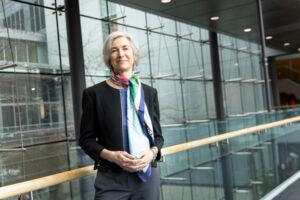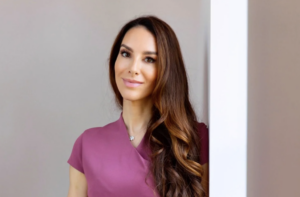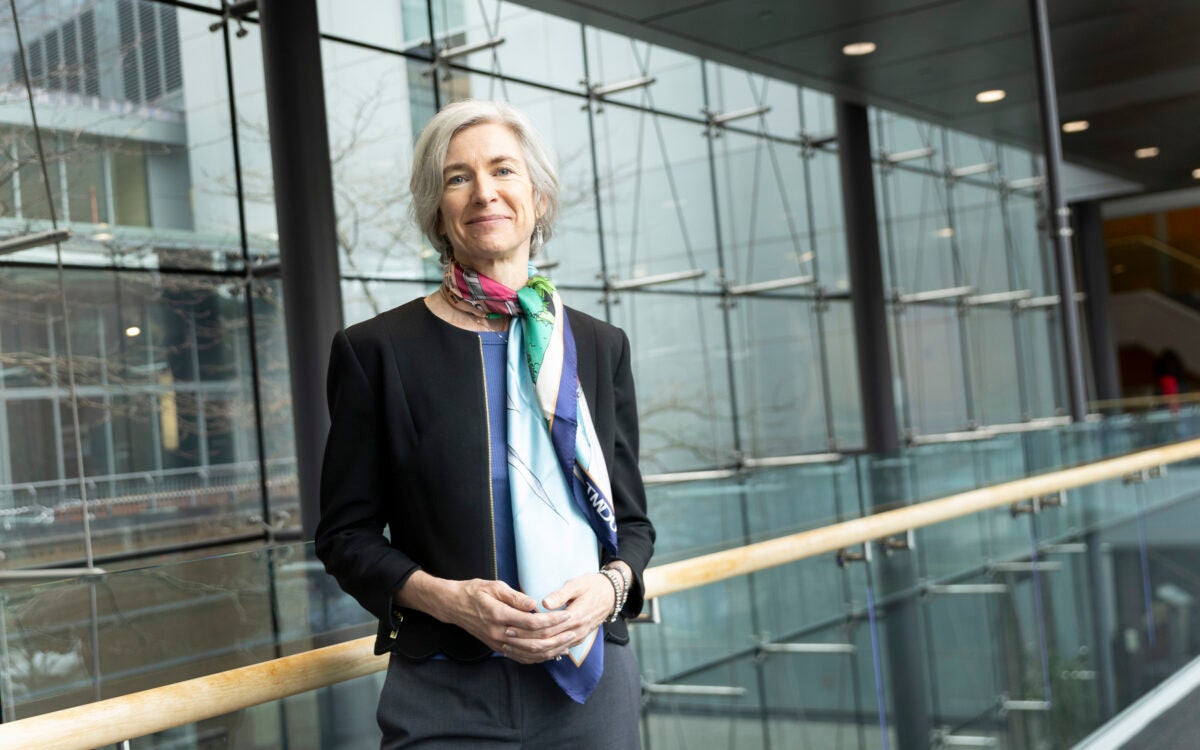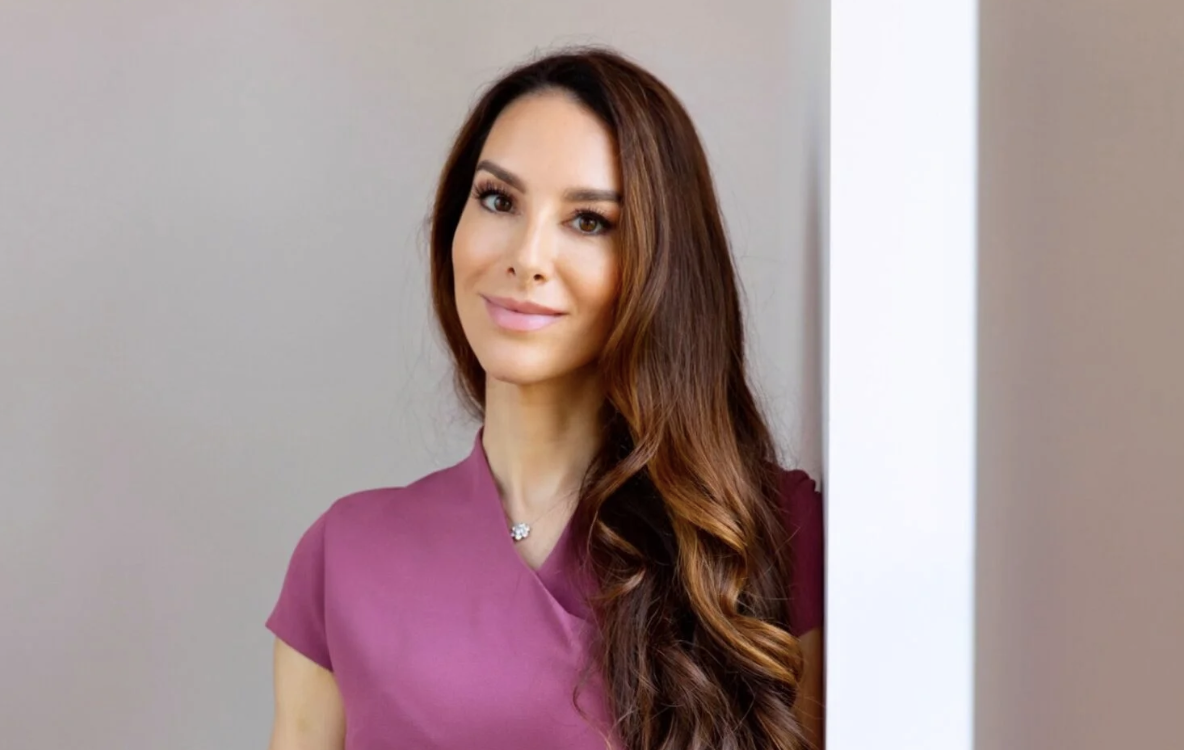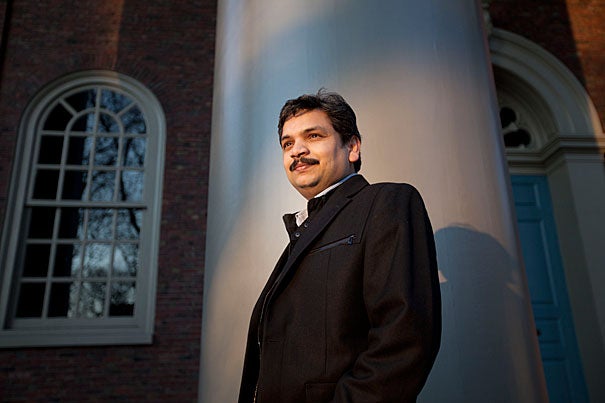
For Sunil Chauhan, an eye researcher at Harvard-affiliated Schepens Eye Research Institute and an assistant professor at Harvard Medical School, the Shore Fellowship means being able to hire an additional postdoctoral fellow to help in the lab. “This is a fantastic program,” he said. “Now I can spend more time on writing.”
Photos by Kris Snibbe/Harvard Staff Photographer
Relief for the weary
Shore Fellowships allow young researchers to focus on key needs
Like many in her generation, Elizabeth Mullen has been juggling caring for elderly parents and small children. But unlike many, Mullen is a physician and a junior faculty member at Harvard Medical School, meaning she has to squeeze clinical work, teaching, and research into her schedule.
“Everyone has family care issues. Nobody’s sleeping at night [because of small children] while also dealing with rehab facilities [for elderly parents],” Mullen said. “There are lots of work-life balance issues.”
Luckily for Mullen, help is on the way. Mullen and 90 other instructors and junior faculty members at Harvard Medical School have received fellowships from the Eleanor and Miles Shore 50th Anniversary Fellowship Program for Scholars in Medicine. The program, established in 1995, was created to commemorate the half-century anniversary of the admission of women to Harvard Medical School. It recognizes that in today’s tough economic environment, where both partners in a relationship often work, the pressures of proving oneself as a junior faculty member come alongside the greatest demands on time from families.
“We were thrilled to see the breadth and depth of activities of this year’s Shore Fellows,” said Carol Bates, assistant dean for faculty affairs. “The Shore Fellowship celebration is a wonderful annual family event at which Dean Flier meets promising junior faculty representing our quadrangle and most of our affiliate hospitals and institutions. We look forward to seeing the results of these projects as candidates come forward for promotion in the coming years.”
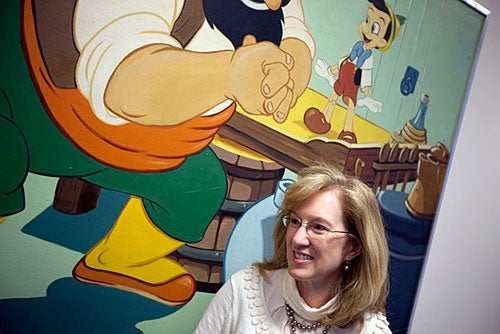
It provides grants ranging between $25,000 and $50,000 that can help hire additional laboratory help or get protected time by easing clinical duties. Since its founding, the program has awarded 721 fellowships.
“It’s just extraordinarily special to have some recognition” of the demands on your time “and recognition that your family situation is part of who you are as a person,” Mullen said.
Mullen said she was recommended for the program by her clinical director, Lisa Diller, a professor of pediatrics and a physician at the Dana-Farber Cancer Institute, who was a Shore Fellow as an assistant professor.
Mullen, a specialist in child renal cancer, has been working to understand renal tumors and improve their treatment. She has conducted a study of the use of CT and MRI scans — which are expensive and require exposure to risky radiation — versus X-rays and ultrasounds in detecting a relapse in people with renal tumors. Preliminary results show that overall patient outcomes may not improve with the more advanced imaging, indicating that a lower-cost option may be preferable.
Mullen said she plans to use the fellowship’s resources to remove herself from clinical time so she can conduct more in-depth analysis of subgroups.
For Sunil Chauhan, an eye researcher at Harvard-affiliated Schepens Eye Research Institute and an assistant professor at Harvard Medical School, the Shore Fellowship means being able to hire an additional postdoctoral fellow to help in the lab.
Chauhan, who trained as a veterinarian and did postdoctoral work in immunology, is using mouse models to investigate inflammatory diseases of the eye, such as occur in dry eye, and regenerative therapies to treat them. Chauhan said he plans to use the Shore Fellowship to hire a postdoctoral fellow who can take on some of the laboratory work, so that Chauhan can concentrate on the months-long process of writing his first R01 grant — a major underpinning of many laboratory operations at Harvard — to the National Institutes of Health.
“This is a fantastic program. I was lucky to get it. Now I can spend more time on writing,” Chauhan said.

